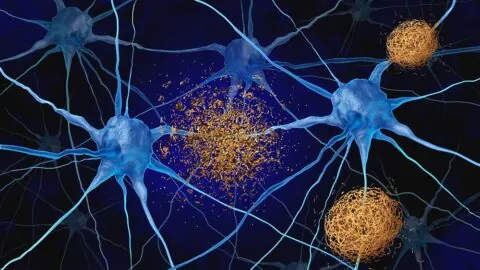May 20, 2025
Scientists have created engineered nanostructures that bind monomers and oligomers of harmful amyloid beta (Aβ) protein, preventing them from entering neurons and drastically increasing the cells’ survival in vitro [1]. Don’t let them into cells! Misfolded proteins are thought to be behind diseases like Alzheimer’s and amyotrophic lateral sclerosis (ALS). The most recognizable hallmark of...
September 25, 2023
An article in GeroScience describes a previously unexplored relationship between FABP7, an inflammatory molecule that binds to fatty acids, and Alzheimer's disease. Not just a transporter Originally, as the authors explain, fatty acid binding proteins (FABPs) were considered to be simple biological chaperones that did not perform biological functions. Further research found that they play...
August 14, 2023
In a study published in Cell Stem Cell, researchers have investigated a way to repopulate the brain with functional cells in order to fight back against Alzheimer's disease. A gene with a microglial function Various allelles of the apolipoprotein E (APOE) genes are well-known for their contributions to, or defenses against, Alzheimer's, as they affect...
June 29, 2023
One of the most common diseases in the world is herpes, as 50 to 80% of Americans have this illness. The herpes simplex virus, which causes cold sores, is normally transmitted through person-to-person contact. This illness leaves the patient with blisters clustered around the mouth. Gradually, the blisters pop and leave sores that take...
April 19, 2023
Chinese scientists have found that the liver removes amyloid-β from circulation in mice, which also decreases its levels in the brain. The age-related impairment of this process might offer a new clue for fighting Alzheimer’s disease [1]. The janitor of the body Despite the flop-laden history of the amyloid-β-centered approach to Alzheimer’s, there is still...
September 19, 2022
In the Journal of Inflammation, researchers from Johns Hopkins University have published a detailed review of the relationship between brain inflammation and the principal diseases of dementia. A focus on genetics and environment One out of twenty Americans over 85 have Parkinson's disease [1], and seven out of twenty have Alzheimer's [2]. While genes are...








